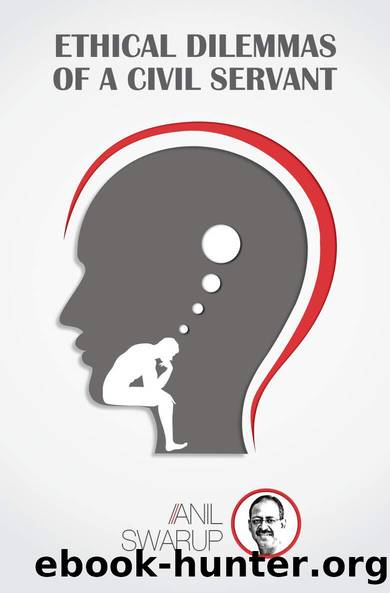ETHICAL DILEMMAS OF A CIVIL SERVANT by Anil Swarup

Author:Anil Swarup [Swarup, Anil]
Language: eng
Format: mobi
Publisher: Unique Publishers India Private Limited
Published: 2020-06-28T18:30:00+00:00
Regaining The Aroma
So a plant having perhaps the minimum characteristics with acceptable parentage grown in south India could not be accepted as Basmati. Neither could be a rice grain with some characteristics and grown in the correct area but of non-Basmati parentage / origin.
There was uproar in India when the Unites States (US) Patent Office granted patent 5,663,484 to Rice-Tec Company on Basmati rice lines and grains. Long grain rice was being sold under the brand names of Calmati and Texmati for a number of years. There had been mild protests against selling of rice varieties that masqueraded as Basmati rice. However, the grant of this patent precipitated the crisis.
I had taken over as Chairman, Agriculture and Processed Food Products Export Development Authority (APEDA) in 2000. Around this time the issue was being debated hotly in various fora and the verdict was yet to be announced. We were clear in our minds that no region other than the Indo-Gangetic plain could grow Basmati as the agro-climatic conditions of this region imparted a particular quality and characteristic to this strain of rice that was not available in other regions. The argument was sustained on the lines of ‘Geographical Indication’ (GI) under the Trade-Related Intellectual Property Rights (TRIPS) of the World Trade Organisation (WTO).
However, the real problem was not external. It was internal. Basmati was not registered as an Intellectual Property Right (IPR) within the country. In fact, there was a lack of understanding of the different forms of intellectual protection. For example, a patent then (and still now) signified a time-limited private right, as was, and is, a Copyright; whereas a Trademark signified a perpetual private right, but subject to conditions. Patenting Basmati was not going to be the solution as the patent period would last only 10-15 years. Would we then accept that after 15 years the patent over Basmati would expire?
What was needed was a community perpetual right namely Geographical Indications (GI) tag. Items like Scotch whisky, Champagne, and Feta cheese were protected under this category.
There was a cacophony of opinions from the ill-informed government scientists who kept talking about patenting Basmati without understanding the implications of its duration.
There were claims from other parts of the country that Basmati was being grown in those regions as well. There were those who claimed that Basmati was even grown in the southern parts of the country, way beyond the Indo-Gangetic plain. Now, if the Basmati could grow in such climatic conditions, it could even grow in Texas or California. If Basmati seed was the only requirement for growing this quality of rice, it could be grown in any part of the world. Such claims were making our task very difficult to demonstrate to the world that the unique agro-climatic and soil characteristics of the Indo-Gangetic plain were necessary conditions to imbue the rice with special qualities, including its unique aroma. Hence, we had to rest the uniqueness on three pillars – all of which had to be satisfied for a variety
Download
This site does not store any files on its server. We only index and link to content provided by other sites. Please contact the content providers to delete copyright contents if any and email us, we'll remove relevant links or contents immediately.
1,001 ASVAB Practice Questions For Dummies by Powers Rod(4034)
ASVAB For Dummies by Powers Rod(2456)
Police Exams Prep 2018-2019 by Kaplan Test Prep(2028)
Churchill by Paul Johnson(2006)
Wiley CPA Examination Review Focus Notes by Kevin Stevens(1611)
Wonder by R J Palacio(1598)
First Aid Handbook--Crucial Survival Skills, Emergency Procedures & Lifesaving Medical Information by Department of the Army(1504)
1936941139 (N) by Bob Rosenthal(1500)
A Very Stable Genius by Philip Rucker & Carol Leonnig(1333)
ASVAB AFQT For Dummies by Rod Powers(1317)
1,001 ASVAB AFQT Practice Questions For Dummies by Angie Papple Johnston(1175)
U.S. Army Combat Pistol Training Handbook by Army(1140)
CISSP For Dummies by Miller Gregory Peter(1133)
The GED Crash Course by Alpha(1107)
Court Officer Exam by Learning Express LLC(1061)
McGraw-Hill Education 2,000 Review Questions for the CPA Exam by Denise M. Stefano(1054)
Master the Civil Service Exams by Peterson's(1053)
Master the ASVAB by Scott Ostrow(1048)
Future Design by Unknown(1013)
